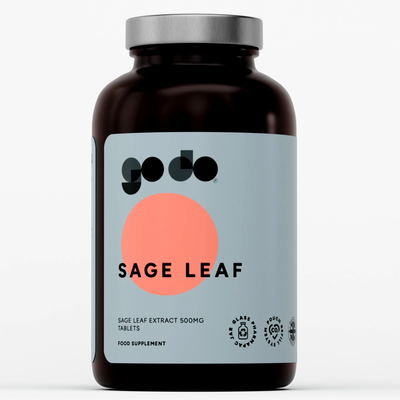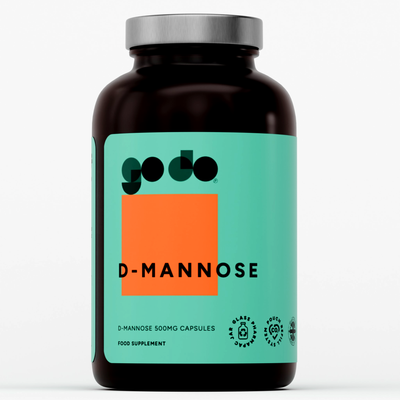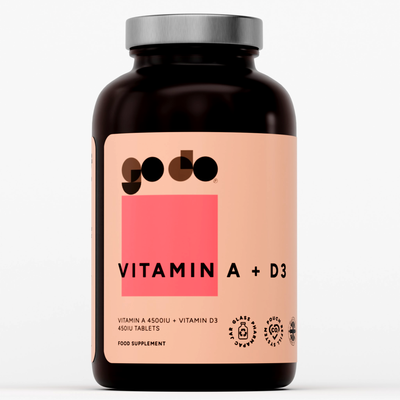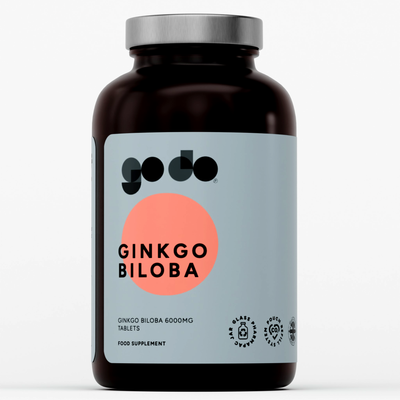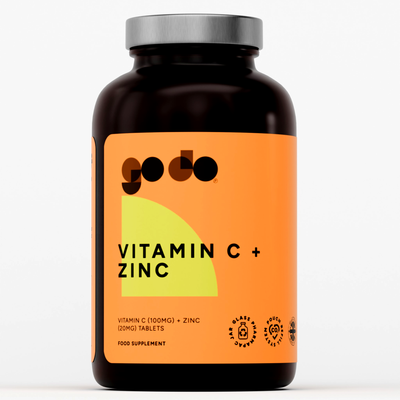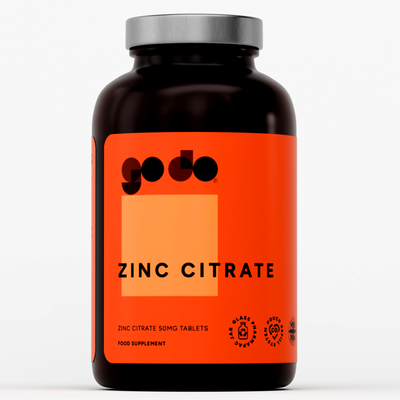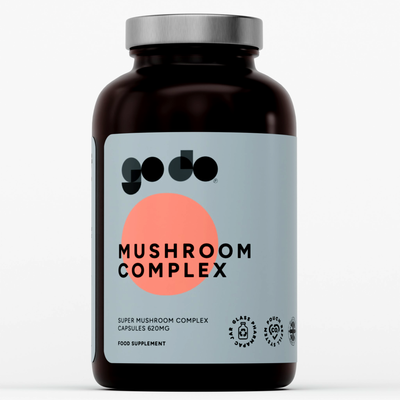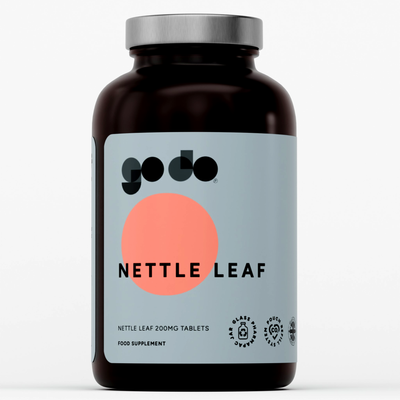The 7 Best Supplements for Natural Bodybuilding You Should Consider
Natural bodybuilding demands a strategic approach to nutrition, training, and recovery. Natural bodybuilding supplements are safe, legal, and effective options that support muscle growth and performance while adhering to the rules of natural bodybuilding. While whole foods form the foundation of any successful muscle-building program, certain supplements can provide targeted support for muscle growth, performance, and recovery. This comprehensive guide examines seven evidence-based supplements that natural bodybuilders should consider, along with the science behind their effectiveness and practical implementation strategies.

Understanding Natural Bodybuilding and Supplementation
Natural bodybuilding distinguishes itself from conventional bodybuilding through its strict prohibition of anabolic steroids, hormones, and other performance-enhancing drugs banned by organizations like the World Natural Bodybuilding Federation (WNBF) and International Natural Bodybuilding Association (INBA). A natural bodybuilder is someone who competes in drug-free competitions and adheres to strict supplement regulations set by these organizations. Natural athletes rely exclusively on proper nutrition, progressive resistance training, adequate recovery, and legally permissible dietary supplements to achieve their physique goals.
The role of supplements in natural bodybuilding centers on supporting physiological processes that drive muscle growth rather than artificially manipulating hormonal systems. Some supplements, such as creatine and HMB, are naturally produced by the human body and are permissible under natural bodybuilding guidelines. Supplements work by providing nutrients that may be difficult to obtain in sufficient quantities through diet alone, optimizing the timing of nutrient delivery around training, filling potential dietary gaps that could limit performance or recovery, and supporting overall health to sustain the demanding physical stress of bodybuilding training.
Natural bodybuilders face unique challenges compared to their enhanced counterparts. Without pharmacological assistance, muscle growth occurs more slowly and requires meticulous attention to nutrition and training variables. Recovery between workouts takes longer, necessitating careful programming to avoid overtraining. Dietary discipline becomes paramount since natural athletes cannot rely on drugs to compensate for nutritional deficiencies. Competition preparation requires more gradual fat loss approaches to preserve hard-earned muscle mass without hormonal support.
The supplement industry markets countless products to bodybuilders, but natural athletes must exercise discernment in selecting supplements. Effective supplementation for natural bodybuilding prioritizes products with robust scientific evidence supporting their benefits, supplements that don’t contain banned substances or proprietary blends of unknown composition, cost-effective options that provide meaningful returns on investment, and supplements addressing specific nutritional needs or training goals rather than attempting to replace fundamental nutrition and training practices.
1. Whey Protein: The Foundational Muscle-Building Supplement
Whey protein stands as perhaps the most researched and widely used supplement in natural bodybuilding, and for good reason. Derived from milk during cheese production, whey protein provides a complete amino acid profile with particularly high concentrations of branched-chain amino acids (BCAAs) and leucine, the primary trigger for muscle protein synthesis. Whey protein is also a complete protein source, containing all nine amino acids essential for muscle protein synthesis and overall biological function.
Forms of whey protein include several variations with distinct characteristics. Whey protein concentrate contains 70-80% protein by weight with remaining content consisting of lactose, fat, and minerals. This form offers good value and retains beneficial compounds like immunoglobulins and lactoferrin. Whey protein isolate undergoes additional processing to achieve 90% or higher protein content with minimal lactose and fat, making it suitable for those with lactose sensitivity and providing more protein per serving. Whey protein hydrolysate represents pre-digested whey broken down into smaller peptides for potentially faster absorption, though research shows minimal practical advantage over other forms for muscle building despite significantly higher cost.
Scientific evidence supporting whey protein demonstrates its effectiveness for natural bodybuilders. Research consistently shows that whey protein supplementation combined with resistance training increases lean muscle mass more effectively than training alone. Studies indicate that consuming 20-40 grams of whey protein post-workout optimizes muscle protein synthesis in most individuals. The rapid digestion and absorption of whey protein makes it particularly effective for post-workout nutrition when muscles are primed for nutrient uptake. Whey’s high leucine content triggers the mTOR pathway, the cellular mechanism responsible for initiating muscle protein synthesis.
Practical application strategies for whey protein involve timing and dosing considerations. Post-workout consumption within two hours of training capitalizes on the “anabolic window” when muscles show heightened sensitivity to nutrients, though recent research suggests this window may be wider than previously thought. Between-meal supplementation helps natural bodybuilders meet elevated protein requirements when whole food meals aren’t practical. Morning consumption following the overnight fast provides quickly absorbed amino acids to halt the catabolic state induced by sleep. Pre-workout intake may benefit those training fasted or several hours after their last meal. A high protein diet, when combined with whey supplementation, can further enhance muscle protein synthesis and support bodybuilding goals.
Optimal dosing depends on individual factors including body weight, training intensity, total daily protein intake, and timing relative to meals. Research suggests 0.25-0.40 grams per kilogram of body weight (approximately 20-40 grams for most people) maximizes muscle protein synthesis per dose. Consuming protein doses spaced 3-5 hours apart throughout the day optimizes cumulative muscle protein synthesis over 24 hours. Total daily protein intake for natural bodybuilders typically ranges from 1.6-2.2 grams per kilogram of body weight, with whey supplementation helping achieve this target. It is crucial to consume enough protein each day to support muscle growth, recovery, and maintenance, especially when training intensely.
Quality considerations matter when selecting whey protein products. Third-party testing through organizations like NSF Certified for Sport, Informed-Sport, or Banned Substances Control Group provides assurance that products are free from contaminants and banned substances. Transparent labeling that clearly lists all ingredients and protein content per serving helps consumers make informed choices. Minimal added ingredients beyond flavoring indicates a quality product focused on protein delivery rather than marketing gimmicks. Reputable manufacturers with established track records and good manufacturing practices reduce risk of contamination or mislabeling.
When considering whole food sources, lean meat is a nutrient-dense, natural alternative to whey protein that supports muscle building and recovery, providing high-quality protein and essential amino acids.
2. Creatine Monohydrate: The Most Effective Performance Enhancer

Creatine monohydrate represents the most extensively researched and consistently effective legal power enhancing supplement for increasing muscle mass, strength, and workout performance in natural athletes. Hundreds of studies over three decades have established creatine’s safety profile and performance benefits, making it a cornerstone supplement for serious natural bodybuilders.
Understanding creatine’s mechanism explains its powerful effects. Creatine combines with phosphate in muscles to form phosphocreatine, a crucial energy reservoir for high-intensity activities. During intense muscle contractions, phosphocreatine rapidly donates phosphate groups to regenerate ATP (adenosine triphosphate), the primary energy currency of cells. This process allows muscles to sustain maximal effort for several seconds longer before fatigue sets in. Enhanced ATP regeneration enables more repetitions per set, heavier loads lifted, or more intense training sessions. The cumulative training stimulus from this increased work capacity drives greater muscle growth over time.
Scientific evidence for creatine demonstrates impressive benefits for natural bodybuilders. Meta-analyses of controlled trials show creatine supplementation increases lean body mass by an average of 1-2 kilograms over 4-12 weeks when combined with resistance training. Strength gains show improvements of 5-15% across various exercises compared to placebo groups. Power output for explosive movements like jumping or sprinting increases significantly with creatine supplementation. Training volume capacity improves, allowing athletes to complete more total work in training sessions. Recovery between high-intensity efforts may be enhanced, supporting better performance across multiple sets or training sessions. Additionally, creatine supplementation can help improve body composition by increasing muscle mass and reducing fat.
Practical supplementation protocols for creatine involve two main approaches. The loading protocol involves consuming 20 grams daily (divided into 4 doses of 5 grams) for 5-7 days to saturate muscle creatine stores rapidly, followed by a maintenance dose of 3-5 grams daily to maintain saturation. This approach maximizes muscle creatine levels quickly but may cause temporary water retention or gastrointestinal discomfort in some individuals. The gradual loading approach involves taking 3-5 grams daily from the start, achieving muscle saturation in 3-4 weeks without the potential side effects of high-dose loading. Research shows both methods ultimately achieve similar muscle creatine saturation and long-term benefits.
Timing and combination strategies can optimize creatine’s effectiveness. Post-workout consumption with carbohydrates and protein may enhance uptake into muscle cells through insulin-mediated transport mechanisms. Consistent daily intake matters more than precise timing, as creatine’s benefits depend on maintaining elevated muscle creatine stores rather than acute pre-workout effects. Combining creatine with beta-alanine may provide synergistic benefits for high-intensity training performance. Taking creatine with caffeine shows no negative interactions despite early concerns, though individual responses vary. Creatine can also improve exercise performance by enhancing strength and endurance during training.
Safety and side effects of creatine have been thoroughly investigated. Decades of research demonstrate creatine monohydrate’s safety when used at recommended doses in healthy individuals. Temporary water retention within muscle cells (not subcutaneous bloating) accounts for initial weight gain but contributes to the muscle volumization that supports growth. Gastrointestinal discomfort occurs in some users, particularly during high-dose loading, but typically resolves with lower doses or taking creatine with meals. Kidney function concerns have been repeatedly disproven in healthy individuals, though those with pre-existing kidney conditions should consult healthcare providers. Quality products from reputable manufacturers minimize risk of contaminants or impurities. Creatine is widely recognized for its positive impact on physical performance in both strength and power activities.
Creatine forms and alternatives are marketed extensively, but creatine monohydrate remains the gold standard. Creatine monohydrate is the most researched form with the most robust evidence base, offers the best value for cost per effective dose, and shows equal or superior effectiveness compared to newer, more expensive forms. Alternative forms like creatine ethyl ester, buffered creatine, or liquid creatine lack evidence of superiority despite marketing claims and higher costs. Micronized creatine monohydrate may dissolve more easily in liquid but provides no performance advantage. Natural bodybuilders should prioritize proven creatine monohydrate over unproven alternatives.
3. Branched-Chain Amino Acids (BCAAs): Recovery and Anti-Catabolic Support
Branched-chain amino acids—leucine, isoleucine, and valine—comprise three of the nine essential amino acids that the body cannot synthesize and must obtain through diet. These amino acids are unique in their metabolic fate, being primarily metabolized in muscle tissue rather than the liver, which positions them as potentially valuable supplements for bodybuilders focused on muscle preservation and growth. BCAA supplements are commonly used by athletes to support muscle growth, enhance recovery, and reduce muscle breakdown, especially when dietary protein intake is insufficient or during specific training routines.
Understanding BCAA metabolism and function reveals their potential benefits. Leucine acts as a primary trigger for muscle protein synthesis by activating the mTOR pathway, the cellular mechanism initiating muscle building processes. BCAAs provide substrate for muscle protein synthesis, contributing to the amino acid pool needed for building new muscle tissue. During prolonged or intense training, BCAAs can be oxidized for energy, potentially sparing muscle protein from breakdown. Isoleucine and valine play roles in energy production and may influence glucose uptake into muscle cells.
Scientific evidence for BCAAs presents a more nuanced picture than marketing materials often suggest. Studies show that BCAA supplementation may reduce markers of muscle damage and soreness following intense training, potentially supporting faster recovery. Research indicates that BCAAs consumed during endurance exercise can reduce central fatigue and maintain mental performance. Evidence for muscle growth benefits is mixed, with some studies showing positive effects while others find no advantage over complete protein sources. The key limitation is that while BCAAs, particularly leucine, can trigger muscle protein synthesis, they provide only three of the nine essential amino acids needed to actually build new muscle protein, potentially limiting their effectiveness compared to complete proteins.
When BCAAs may be beneficial depends on specific circumstances and training contexts. Fasted training situations where consuming BCAAs may help preserve muscle mass in the absence of pre-workout nutrition make sense for some athletes. Endurance or prolonged training sessions where anti-catabolic effects and reduced central fatigue might support performance could benefit from BCAA supplementation. BCAAs are often consumed before, during, or after physical exercise to support muscle preservation and reduce fatigue. Low overall protein intake scenarios where BCAAs might help compensate for inadequate essential amino acid consumption, though improving total protein intake would be preferable. Convenience situations where carrying BCAA drinks is more practical than whole foods or complete protein supplements during long training sessions.
Practical dosing and timing recommendations for those who choose to use BCAAs include consuming 5-10 grams per dose to achieve potentially beneficial blood amino acid concentrations. A leucine-weighted ratio of approximately 2:1:1 (leucine:isoleucine:valine) aligns with most research showing benefits. Pre-workout or intra-workout timing may help maintain blood amino acid levels during training. Post-workout consumption could contribute to recovery, though complete protein sources offer superior benefits.
The protein quality debate raises important considerations for natural bodybuilders. Complete protein sources like whey protein provide all nine essential amino acids needed for muscle protein synthesis, not just the three BCAAs. Research comparing BCAAs to whey protein consistently shows whey producing superior muscle protein synthesis responses. Whole food protein sources from meat, fish, eggs, and dairy provide BCAAs along with complete amino acid profiles plus other beneficial nutrients. Cost comparison reveals that BCAAs typically cost more per gram of amino acids than quality whey protein while providing fewer total essential amino acids.
Alternatives to BCAA supplementation that may provide better value include increasing total daily protein intake from complete sources, which ensures adequate BCAA consumption along with all other essential amino acids. Strategic protein timing around training with complete proteins optimizes nutrient delivery. Consuming whole foods rich in protein before training prevents the need for intra-workout amino acid supplementation. Essential amino acid (EAA) supplements provide all nine essential amino acids, addressing BCAAs’ main limitation while still offering convenience for specific situations.
4. Beta-Alanine: Buffering Fatigue for Higher Training Volume

Beta-alanine has emerged as one of the few non-essential amino acid supplements with solid scientific evidence supporting performance benefits for high-intensity training. Natural bodybuilders can leverage beta-alanine to increase training volume and intensity, potentially accelerating muscle growth over time.
Understanding beta-alanine’s mechanism explains its effects on performance. Beta-alanine combines with the amino acid histidine to form carnosine, a dipeptide concentrated in muscle tissue. Carnosine acts as an intracellular buffer, neutralizing hydrogen ions that accumulate during high-intensity exercise and contribute to the burning sensation and fatigue associated with intense muscle contractions. Higher muscle carnosine concentrations delay the onset of muscular fatigue during sets lasting approximately 60-240 seconds, the typical duration of bodybuilding sets. Enhanced buffering capacity allows more repetitions per set before reaching failure, increasing total training volume. Beta-alanine supplementation can also help reduce both mental and physical fatigue during demanding workouts, supporting better overall performance.
Scientific evidence for beta-alanine demonstrates measurable performance improvements. Studies show that 4-6 weeks of beta-alanine supplementation increases muscle carnosine levels by 40-80%, with continued supplementation producing further increases. Research indicates improved performance in exercises lasting 1-4 minutes, the sweet spot for bodybuilding training. Meta-analyses show modest but significant improvements in training volume and time to exhaustion. Lean body mass gains may be slightly enhanced when beta-alanine allows athletes to sustain higher training volumes over time. Effects are most pronounced during high-intensity resistance training protocols with moderate repetition ranges (8-15 reps per set). Beta-alanine is particularly effective for athletes engaging in high intensity interval training due to its buffering effects, which help delay fatigue and improve workout efficiency.
Practical supplementation protocols for beta-alanine require patience and consistency. The standard dose is 3-6 grams daily, typically split into multiple smaller doses to minimize side effects. Loading requires 4-6 weeks of consistent supplementation before muscle carnosine reaches levels that meaningfully impact performance, unlike creatine which works more quickly. Maintenance involves continuing daily supplementation to maintain elevated muscle carnosine stores, as levels gradually decline over several weeks if supplementation ceases. Timing is flexible since beta-alanine’s benefits depend on chronic elevation of muscle carnosine rather than acute pre-workout effects, though many athletes take it pre-workout for psychological reasons.
Managing paresthesia addresses beta-alanine’s most common side effect. Paresthesia manifests as a tingling or flushing sensation, particularly in the face, neck, and hands, typically occurring 15-30 minutes after ingestion. This harmless effect results from beta-alanine activating certain nerve receptors and resolves within 60-90 minutes. Mitigation strategies include splitting total daily doses into smaller amounts (1-1.5 grams) consumed throughout the day, taking beta-alanine with meals to slow absorption, using sustained-release formulations if available and cost-effective, or accepting the sensation as a harmless side effect if it doesn’t cause significant discomfort. Reducing physical fatigue is one of the main reasons athletes use beta-alanine, making the temporary tingling sensation a worthwhile trade-off for many.
Combination strategies can enhance beta-alanine’s effectiveness. Combining beta-alanine with creatine may provide complementary benefits, as they work through different mechanisms—creatine enhancing phosphocreatine energy systems while beta-alanine buffers hydrogen ion accumulation. Some research suggests synergistic effects when both supplements are used together. Sodium bicarbonate provides acute buffering effects that could theoretically complement beta-alanine’s chronic muscle carnosine elevation, though gastrointestinal side effects may limit practicality. Pre-workout supplements often include beta-alanine, though doses may be inadequate for achieving optimal muscle carnosine levels without additional supplementation.
Cost-benefit considerations for natural bodybuilders involve evaluating whether beta-alanine fits individual budgets and goals. Beta-alanine costs more than creatine per serving but less than many other supplements. Benefits are real but modest compared to creatine’s more dramatic effects. The supplement works best for athletes who train with high volume and moderate rep ranges where muscular fatigue limits performance. Those on limited budgets should prioritize protein and creatine before adding beta-alanine. Athletes who primarily train with very low reps (1-5) or very high reps (20+) may see less benefit since beta-alanine’s buffering effects are most relevant for the 8-15 rep range where hydrogen ion accumulation drives fatigue.
5. Omega-3 Fatty Acids: Supporting Recovery and Overall Health

While not directly muscle-building supplements, omega-3 fatty acids from fish oil provide foundational health support that indirectly benefits natural bodybuilders through enhanced recovery, reduced inflammation, and overall wellness that sustains demanding training schedules.
Understanding omega-3 fatty acids begins with recognizing their essential nutritional status. The two primary omega-3s in fish oil are EPA (eicosapentaenoic acid) and DHA (docosahexaenoic acid), long-chain fatty acids that humans cannot synthesize efficiently from plant-based omega-3 precursors. These fatty acids incorporate into cell membranes throughout the body, influencing membrane fluidity, cellular signaling, and gene expression. Western diets typically provide excessive omega-6 fatty acids relative to omega-3s, creating a pro-inflammatory imbalance that omega-3 supplementation can help correct.
Benefits for natural bodybuilders extend across multiple physiological systems. Omega-3s reduce systemic inflammation that can impair recovery from intense training. Some research suggests enhanced muscle protein synthesis in response to omega-3 supplementation, potentially through improved insulin sensitivity and anabolic signaling. Joint health may improve as omega-3s reduce inflammatory processes contributing to exercise-induced joint discomfort. Cardiovascular health benefits are well-established, important for athletes engaging in intense training that stresses the cardiovascular system. Cognitive function and mood regulation supported by adequate omega-3 intake help maintain the mental focus and motivation essential for consistent training adherence.
Scientific evidence specific to training shows promising but not definitive results. Studies indicate that omega-3 supplementation may reduce delayed onset muscle soreness (DOMS) following intense training by modulating inflammatory responses. Research on muscle protein synthesis shows mixed results, with some studies finding enhanced anabolic responses to protein and exercise while others show no effect. Joint pain and stiffness associated with intense training may be reduced in athletes supplementing with omega-3s. Long-term cardiovascular and metabolic health benefits provide a strong rationale for supplementation regardless of direct muscle-building effects.
Practical dosing recommendations for athletes generally suggest higher intakes than standard dietary recommendations. Combined EPA and DHA intake of 2-3 grams daily supports anti-inflammatory and recovery benefits, higher than the 250-500mg often recommended for general health. Emphasizing EPA over DHA may provide greater anti-inflammatory effects, though both fatty acids offer benefits. Taking omega-3s with meals enhances absorption and reduces the fishy aftertaste or reflux some users experience. Consistency matters more than timing since omega-3's benefits depend on long-term tissue incorporation rather than acute effects.
Quality and purity considerations are crucial when selecting fish oil supplements. Third-party testing for heavy metals, PCBs, and other contaminants ensures safety, as fish-derived products can contain environmental pollutants. Freshness indicators like low peroxide values prevent consumption of oxidized (rancid) omega-3s that may cause more harm than good. Triglyceride or phospholipid forms may be absorbed better than ethyl ester forms, though quality products in any form can be effective. Sustainable sourcing from responsibly managed fisheries supports environmental stewardship.
Alternative sources and forms provide options for different preferences and dietary restrictions. Krill oil contains omega-3s in phospholipid form with astaxanthin, potentially offering enhanced absorption and antioxidant benefits, though at higher cost than fish oil. Algae-based omega-3 supplements provide a vegan source of EPA and DHA, suitable for plant-based athletes. Concentrated fish oil products deliver higher EPA/DHA doses in fewer capsules, improving convenience for those needing higher intakes. Prescription omega-3 products meet pharmaceutical standards for purity and concentration but typically cost significantly more than quality over-the-counter supplements.
6. Vitamin D: The Foundation for Health and Performance
Vitamin D, technically a hormone rather than a vitamin, plays crucial roles in bone health, immune function, and muscle function that make it particularly relevant for natural bodybuilders. Widespread deficiency in populations living far from the equator or with limited sun exposure makes vitamin D one of the most important supplements for many athletes.
Understanding vitamin D's functions reveals its wide-ranging physiological impacts. Vitamin D regulates calcium absorption and bone mineralization, critical for the skeletal support needed for progressive overload training. Muscle tissue contains vitamin D receptors, and adequate levels support muscle protein synthesis, contractile function, and potentially muscle growth. Immune function depends partially on vitamin D, helping athletes avoid illness that disrupts training consistency. Testosterone production may be influenced by vitamin D status, particularly relevant for natural bodybuilders dependent on optimizing natural hormone production.
Prevalence of deficiency makes supplementation necessary for many individuals. Studies show that 40-60% of people in temperate climates have insufficient vitamin D levels (below 20 ng/mL or 50 nmol/L). Athletes training primarily indoors face particular risk of deficiency regardless of geographic location. Darker skin pigmentation reduces vitamin D synthesis from sunlight, increasing supplementation needs for some populations. Winter months in higher latitudes provide insufficient UVB radiation for adequate vitamin D production from sun exposure. Most foods contain minimal vitamin D, making it difficult to obtain adequate amounts through diet alone without fortified foods or supplementation.
Evidence for performance benefits supports vitamin D optimization for athletes. Research shows that athletes with higher vitamin D levels tend to demonstrate better muscle strength, power output, and overall performance compared to deficient counterparts. Supplementation studies in deficient individuals show improvements in strength and muscle function after vitamin D repletion. Injury rates may be reduced in athletes maintaining adequate vitamin D status. Immune function improvements can reduce upper respiratory infections that interrupt training. Mood and motivation may improve with adequate vitamin D, supporting training adherence.
Practical supplementation guidelines help athletes achieve optimal status. Testing baseline vitamin D levels through blood work (25-hydroxyvitamin D) allows personalized dosing to achieve optimal ranges. Target ranges for athletes typically aim for 40-60 ng/mL (100-150 nmol/L), higher than minimum sufficiency thresholds. Supplementation doses vary based on baseline levels, typically ranging from 2,000-5,000 IU daily for maintenance, with higher loading doses for correction of deficiency. Vitamin D3 (cholecalciferol) is more effective than vitamin D2 (ergocalciferol) for raising blood levels. Taking vitamin D with fat-containing meals enhances absorption of this fat-soluble vitamin. Periodic retesting ensures levels remain in the optimal range and allows dose adjustments.
Safety considerations for vitamin D supplementation involve understanding appropriate dosing limits. Vitamin D toxicity is rare but possible with chronic excessive intake, typically requiring daily doses exceeding 10,000 IU for extended periods. Upper limits of 4,000 IU daily are considered safe for most adults, though therapeutic doses under medical supervision may exceed this. Hypercalcemia represents the primary risk of vitamin D toxicity, causing symptoms like nausea, weakness, and kidney problems. Monitoring through blood tests prevents excessive supplementation while ensuring adequate repletion.
Cofactor considerations suggest that vitamin D works synergistically with other nutrients. Magnesium is required for vitamin D metabolism and activation, making adequate magnesium intake important for vitamin D effectiveness. Vitamin K2 works with vitamin D to properly direct calcium to bones rather than soft tissues. Calcium intake should be adequate but not excessive, as vitamin D increases calcium absorption. Some practitioners recommend comprehensive supplementation addressing all these cofactors rather than isolated vitamin D supplementation.
7. Caffeine: Acute Performance Enhancement and Training Intensity

Caffeine stands as one of the most researched and effective ergogenic aids for athletic performance, including resistance training. Natural bodybuilders can leverage caffeine strategically to enhance training intensity, delay fatigue, and potentially increase total training volume.
Understanding caffeine's mechanisms explains its performance-enhancing effects. Caffeine acts as an adenosine receptor antagonist, blocking adenosine's fatigue-promoting effects on the nervous system and creating a stimulant effect that increases alertness and reduces perception of effort. Adrenaline release increases with caffeine consumption, preparing the body for intense physical exertion. Calcium release from muscle cells may be enhanced, potentially improving contractile force. Fat oxidation increases slightly with caffeine, though this effect has minimal practical significance for bodybuilding training.
Scientific evidence for resistance training demonstrates meaningful benefits. Studies show that caffeine consumption 30-60 minutes before training can increase strength performance by 3-8% across various exercises. Muscular endurance improves, allowing athletes to complete more repetitions at a given load before reaching failure. Power output during explosive movements shows enhancement with caffeine supplementation. Perceived exertion decreases, allowing athletes to tolerate higher training intensities or volumes without proportionally increased discomfort. Focus and motivation improve, supporting better mind-muscle connection and training quality.
Practical dosing strategies optimize caffeine's benefits while minimizing side effects. Effective doses typically range from 3-6 mg per kilogram of body weight, translating to approximately 200-400mg for most individuals. Timing consumption 30-60 minutes before training allows caffeine to reach peak blood levels during the workout. Starting with lower doses and gradually increasing helps assess individual tolerance and minimize side effects. Habitual users may require higher doses to achieve similar effects due to tolerance development, though complete tolerance doesn't occur for performance benefits.
Managing tolerance and dependence helps maintain caffeine's effectiveness. Cycling caffeine by reducing or eliminating intake for 1-2 weeks every 6-8 weeks can restore sensitivity and reduce habituation. Reserving caffeine primarily for hard training sessions rather than daily consumption preserves its effectiveness for when it matters most. Gradual reduction rather than abrupt cessation minimizes withdrawal symptoms like headaches and fatigue when cycling off caffeine. Some athletes maintain consistent moderate caffeine intake and add extra doses only for particularly demanding training sessions or competitions.
Side effects and contraindications require consideration when using caffeine. Common issues include jitteriness, anxiety, or nervousness in sensitive individuals or with excessive doses. Sleep disruption occurs if caffeine is consumed too late in the day, as its half-life of 4-6 hours means effects persist for many hours. Gastrointestinal distress including acid reflux or accelerated bowel movements affects some users. Cardiovascular stimulation increases heart rate and blood pressure, requiring caution in those with cardiovascular conditions. Individual variability in caffeine metabolism via CYP1A2 enzyme polymorphisms means some people metabolize caffeine slowly and experience prolonged or intense effects.
Caffeine sources and delivery methods offer various options for athletes. Coffee provides caffeine along with beneficial polyphenols and antioxidants, though caffeine content varies significantly between preparations. Caffeine pills offer precise dosing and convenience but lack the additional compounds found in coffee. Pre-workout supplements typically contain caffeine along with other ingredients, though actual caffeine content may not match label claims or individual needs. Energy drinks provide caffeine but often include excessive sugar or other ingredients that may not benefit training. Black or green tea offers moderate caffeine doses with beneficial catechins and L-theanine, which may smooth caffeine's stimulant effects.
Strategic caffeine use for bodybuilding involves intelligent timing and application. Prioritizing caffeine for leg training or other particularly demanding workouts maximizes its impact where it matters most. Competition preparation can include caffeine as part of the strategy, particularly during depleted states when energy is low. Avoiding caffeine dependency that requires high doses just to feel normal preserves its ergogenic potential. Combining moderate caffeine with proper nutrition, sleep, and training programming rather than relying on caffeine to compensate for inadequate recovery.
Integrating Supplements into a Comprehensive Natural Bodybuilding Program
Effective supplementation for natural bodybuilding requires integration into a comprehensive program addressing nutrition, training, recovery, and overall lifestyle factors rather than viewing supplements as magic bullets or replacements for fundamental practices.
Foundational nutrition principles must be established before supplements provide meaningful benefits. Total caloric intake appropriate for goals determines whether muscle growth or fat loss occurs, with supplements unable to compensate for improper energy balance. Macronutrient distribution emphasizing adequate protein (1.6-2.2 g/kg body weight), sufficient carbohydrates to fuel training, and adequate fats for hormonal health creates the nutritional foundation. Consuming enough protein and following a structured plan is essential to build muscle and support recovery. Nutrient timing around training optimizes the anabolic response to exercise, with supplements potentially enhancing but not replacing this strategy. Whole food emphasis provides micronutrients, fiber, and beneficial compounds that supplements cannot replicate, making whole foods the dietary foundation.
Training program design determines how effectively supplements support muscle growth. Resistance exercise is the primary driver of muscle hypertrophy and should be combined with proper nutrition and supplementation for optimal results. Progressive overload through gradually increasing weight, volume, or intensity drives adaptation that supplements can support but not replace. Adequate training volume provides sufficient stimulus for growth without exceeding recovery capacity, with supplements potentially enhancing recovery to support slightly higher volumes. Exercise selection emphasizing compound movements and appropriate variety ensures comprehensive muscular development. Periodization varying training variables prevents plateaus and overtraining while optimizing long-term progress. Intensity management balancing hard training with appropriate recovery allows sustainable progress over months and years.
Recovery and lifestyle factors often limit progress more than nutrition or training variables. Sleep quantity and quality of 7-9 hours nightly supports hormonal health, recovery, and muscle growth more powerfully than any supplement. Stress management prevents cortisol elevation that can impair recovery and muscle building regardless of supplementation. Hydration supports performance, nutrient transport, and recovery processes. Alcohol moderation preserves testosterone levels and muscle protein synthesis that supplements cannot rescue if chronically elevated alcohol intake suppresses them. Consistency in training and nutrition over months and years drives progress, with supplements playing a supporting rather than primary role.
Supplement prioritization based on budget helps natural bodybuilders allocate resources effectively. Tier one essentials include protein powder if dietary protein intake proves difficult to achieve through whole foods, and creatine monohydrate for its powerful, well-established effects on strength and muscle mass. Certain supplements are particularly effective for enhancing muscle growth and helping to preserve lean mass during fat loss phases. Tier two valuable additions encompass beta-alanine for athletes training with high volume in moderate rep ranges, omega-3 fatty acids for recovery and health support, and vitamin D if testing reveals deficiency or insufficient status. Tier three optional supplements include BCAAs only in specific circumstances like fasted training, caffeine for acute performance enhancement if tolerated well, and specific micronutrients if testing or dietary assessment reveals deficiencies.
Monitoring progress and adjusting strategies ensures supplements contribute meaningfully to goals. Baseline measurements including body weight, body composition, strength levels, and training performance establish starting points. Regular assessment every 2-4 weeks tracks changes in relevant metrics. Tracking changes in lean mass is a key indicator of successful supplementation and training. Isolating variables by changing one supplement at a time allows evaluation of individual contributions rather than confusion from simultaneous changes. Objective data collection prevents biased assessment of whether supplements provide value. Cost-benefit analysis periodically evaluates whether supplements justify their expense through measurable improvements.
Avoiding supplement industry pitfalls protects natural bodybuilders from wasting money on ineffective or even harmful products. Evidence-based sports nutrition strategies are crucial for natural bodybuilders to maximize results safely and effectively. Proprietary blends hide actual ingredient doses, preventing informed decisions and potentially under-dosing effective ingredients. Exaggerated claims that sound too good to be true generally are too good to be true, as legal supplements cannot replicate steroid-like effects. Unnecessary ingredients added to justify higher prices or create perceived uniqueness often provide no benefit. “Natural testosterone boosters” that actually work are banned substances, while legal options show minimal effects in healthy individuals. Fat burners provide minimal benefits compared to proper diet and often rely on excessive caffeine or unproven ingredients.
Legal and organizational compliance matters for natural bodybuilders subject to drug testing. Understanding banned substance lists from relevant organizations (WNBF, INBA, etc.) prevents inadvertent violations. Third-party testing certification through NSF Certified for Sport, Informed-Sport, or Banned Substances Control Group provides assurance that products don’t contain prohibited substances. Avoiding supplements with proprietary blends reduces risk of unknowingly consuming banned ingredients. Research on supplement companies before purchasing helps identify reputable manufacturers with good track records. When in doubt, consulting with federation officials about specific products prevents disqualification.
Conclusion: Evidence-Based Supplementation for Natural Muscle Building

The seven supplements discussed—whey protein, creatine monohydrate, BCAAs, beta-alanine, omega-3 fatty acids, vitamin D, and caffeine—represent the most evidence-based options for natural bodybuilders seeking to optimize muscle growth, performance, and recovery through legal, safe supplementation. Each supplement offers distinct benefits addressing specific aspects of the training and recovery process.
Whey protein provides a convenient, high-quality protein source that supports muscle protein synthesis and helps athletes meet elevated protein requirements. Creatine monohydrate stands as the single most effective legal supplement for increasing strength, power, and muscle mass through enhanced training capacity. BCAAs offer specific benefits in limited circumstances, though complete protein sources generally provide superior value. Beta-alanine buffers muscular fatigue, allowing higher training volumes in the moderate rep ranges typical of bodybuilding. Omega-3 fatty acids support recovery, reduce inflammation, and promote overall health that sustains demanding training. Vitamin D optimization ensures adequate levels of this crucial hormone for muscle function, bone health, and immune support. Caffeine enhances acute training performance, allowing greater intensity and volume in individual sessions.
Natural bodybuilders must recognize that supplements occupy a supporting rather than primary role in achieving physique goals. No supplement can compensate for inadequate nutrition, suboptimal training, or insufficient recovery. The fundamentals—appropriate caloric intake, adequate protein consumption, progressive overload training, sufficient sleep, and stress management—drive the vast majority of results. Supplements provide incremental benefits that, while worthwhile, pale in comparison to getting these fundamentals right.
Cost-benefit considerations should guide supplement selection, with priority given to well-established, cost-effective options like creatine and protein before adding more expensive or marginally beneficial supplements. Quality matters, as third-party testing, transparent labeling, and reputable manufacturers reduce risk of contamination, mislabeling, or inadvertent consumption of banned substances. Individual responses vary, making personal experimentation within evidence-based guidelines necessary to identify which supplements provide the best results for each athlete.
The natural bodybuilding journey requires patience, consistency, and a long-term perspective. Supplements can shorten the path to physique goals by perhaps 5-10% compared to optimal nutrition and training alone—significant over years of dedicated effort but not transformative in isolation. By maintaining realistic expectations, prioritizing proven supplements with strong scientific support, integrating supplementation into comprehensive programs addressing all aspects of training and recovery, and maintaining long-term consistency in fundamental practices, natural bodybuilders can achieve impressive physiques while staying true to drug-free principles. The seven supplements outlined in this guide represent the best tools available for supporting this challenging but ultimately rewarding pursuit.
Beta Hydroxy Beta Methylbutyrate (HMB): Preserving Muscle and Enhancing Recovery
Beta Hydroxy Beta Methylbutyrate, or HMB as it's lovingly known in our wellness community, is truly a gift that's gaining the attention it deserves among those who choose the natural path to bodybuilding. As a gentle metabolite born from leucine, one of our body's essential amino acids, HMB nurtures your muscles with such care, both encouraging the beautiful process of muscle protein synthesis while tenderly protecting against muscle protein degradation. This wonderful dual action becomes especially precious during those challenging times when you're pushing through intense exercise, thoughtfully restricting calories, or when your training demands feel overwhelming.
What fills my heart with joy is seeing how research continues to show us that HMB supplementation can be such a compassionate companion for natural bodybuilders who want to honor their muscle mass by gently minimizing the breakdown that can happen during those tough workout cycles or when you're carefully managing your nutrition. By lovingly supporting protein synthesis and offering protection against muscle damage, HMB doesn't just nurture muscle growth - it embraces your overall muscle function and performance with such tenderness. So many dedicated athletes share with me how they've experienced less muscle soreness and found themselves recovering more gracefully when they've welcomed HMB into their routine, allowing them to train more frequently and with greater joy in their sessions.
For those beautiful souls seeking to maximize their muscle growth and recovery while staying true to their natural path - avoiding any substances that don't align with their values - beta hydroxy beta methylbutyrate offers such a wonderful, science-supported approach that honors your body's natural wisdom. Its gentle ability to preserve your precious lean muscle mass while supporting your recovery journey makes it such a thoughtful addition to any natural bodybuilding supplement family, especially during those periods when training stress feels intense or when you're lovingly working to maintain muscle while releasing excess fat.
Immune System Support for Natural Bodybuilders

Building and maintaining a strong, resilient immune system is something I've always believed to be at the heart of any successful natural bodybuilding journey. Through my years of working with dedicated athletes, I've witnessed how the beautiful intensity of natural training can sometimes leave the body vulnerable and stressed. This is where glutamine, that wonderful and most abundant amino acid flowing through our bodies, becomes such a precious ally in supporting our immune defenses and nurturing the countless physiological processes that help us heal and thrive.
I've seen countless natural bodybuilders discover the gentle yet powerful support that glutamine supplementation can offer, especially during those challenging periods of intense training or when they're working through a caloric deficit - times when our bodies whisper for extra care and protection from illness. This remarkable amino acid works so beautifully within us, nourishing our protein metabolism while lovingly fueling our immune cells and tenderly supporting our muscle tissue as it repairs itself after those demanding workouts. When we honor our bodies with adequate glutamine, we're truly embracing a path that reduces those frustrating interruptions from illness, nurtures our muscle growth, and cradles our recovery in the most natural way.
Weaving glutamine into your personalized supplement routine is really about creating a foundation of care that protects your immune vitality while supporting all those beautiful physiological processes your body needs to build strength and maintain that radiant peak performance. For those of you on this natural bodybuilding journey, I've always found that nurturing your immune health with this kind of gentle wisdom becomes one of your most powerful strategies for sustained success and that uninterrupted progress we all cherish.
Choosing the Right Supplements for Your Goals
I understand how overwhelming it can feel when you're standing in that supplement aisle, surrounded by countless bottles and promises. After years of working with clients who are passionate about natural bodybuilding, I've learned that the key is finding what truly nourishes your body's unique needs. When we think about supporting your muscle-building journey naturally, I always encourage focusing on supplements that work harmoniously with your body's own healing processes. Whey protein isolate has been a gentle friend to so many of my clients - it's like giving your muscles exactly the building blocks they're craving, with those precious amino acids and branched chain amino acids that help your body repair and grow stronger after each workout.
From my experience guiding folks through their wellness journeys, I've seen how beautifully creatine monohydrate can support your body's natural strength. It's one of those foundational helpers that I often recommend because it works so gently with your system to enhance what your body already wants to do. And those branched chain amino acids? They're like a warm hug for tired muscles, especially when you're pushing yourself or when life gets busy and your nutrition isn't quite where you'd like it to be. I've also found that HMB and glutamine can be wonderful allies for preserving that precious lean muscle you've worked so hard to build, while also supporting your immune system - because true health is about the whole person, not just one aspect.
What brings me such joy in this work is helping each person find their own path to wellness. Your supplement choices should feel as personal as your favorite herbal tea blend - what works beautifully for your training partner might not be exactly what your body needs. I always encourage my clients to work with someone they trust, whether that's a healthcare professional or a registered dietitian who understands your individual story. The most beautiful results come when we honor both the wisdom of good nutrition and the unique needs of your own precious body, all supported by movement that makes you feel truly alive.
Safety and Effectiveness of Supplements in Natural Bodybuilding
When it comes to choosing supplements for your natural bodybuilding journey, I always encourage my clients to approach this decision with both care and wisdom. Your body deserves the very best, and while certain natural supplements can beautifully support your muscle growth and recovery efforts, it's so important to remember that not every product out there has your wellbeing at heart. I've seen too many people get overwhelmed by flashy marketing, so I always guide folks toward reputable manufacturers who truly care about quality - those who embrace third-party testing and transparency. And please, dear, always honor the recommended dosages; your body knows when something feels right.
What brings me such joy is helping people understand that supplements are wonderful allies in your wellness journey, but they're meant to complement - never replace - the nourishing whole foods and consistent movement that form the foundation of vibrant health. The World Natural Bodybuilding Federation and similar organizations have created these thoughtful guidelines not to restrict you, but to protect and empower you on your path. When you choose evidence-based products that align with these caring standards, you're honoring both your goals and your body's natural wisdom.
I truly believe that when you prioritize safety and effectiveness in your supplement choices, you're creating space for genuine, lasting transformation. These natural allies can contribute so beautifully to your muscle growth and overall vitality when chosen with intention and respect. Remember, this journey toward natural bodybuilding success is a marathon, not a sprint - and every thoughtful choice you make is an investment in your long-term wellbeing and strength.
Common Mistakes to Avoid with Supplementation
So many dedicated natural bodybuilders find themselves caught in well-meaning but counterproductive patterns when it comes to supplementation, and I've seen how this can gently undermine their beautiful journey toward muscle growth while sometimes compromising their overall wellness. One of the most common paths I notice is when folks become overly dependent on supplements, forgetting to nurture their bodies first with a thoughtfully balanced, whole-food approach rich in high quality protein and those essential amino acids our muscles truly crave. While supplements like whey protein isolate and branched chain amino acids are wonderful, supportive tools for encouraging muscle protein synthesis, they work best when they're lovingly integrated alongside—rather than replacing—nourishing whole foods and that consistent, mindful resistance training practice.
Another gentle trap I often see is when people exceed those recommended dosages or try to incorporate too many supplements all at once, which can create unwanted effects and unfortunately waste those hard-earned resources. When we choose products from manufacturers who don't prioritize quality and transparency, we open ourselves to the possibility of contamination or ingredients that simply don't deliver what we're hoping for, which can compromise both our safety and the results we're working toward. Additionally, some beautiful souls may view supplements as a shortcut to muscle growth, inadvertently neglecting that consistent, patient effort that's so essential in both the gym and the kitchen.
To lovingly navigate away from these common missteps, I encourage natural bodybuilders to build their foundation on high quality protein sources, such as whey protein isolate, while ensuring they're getting adequate amounts of those essential and branched chain amino acids to naturally support protein synthesis and nurture muscle growth. Supplements can be used thoughtfully and purposefully, as part of a holistic approach that honors a balanced, nourishing diet, structured training that feels sustainable, and proper recovery that allows our bodies to heal and grow. By gently steering clear of these well-intentioned mistakes, natural bodybuilders can create a supplementation approach that truly serves their goals and supports lasting, healthy progress.

